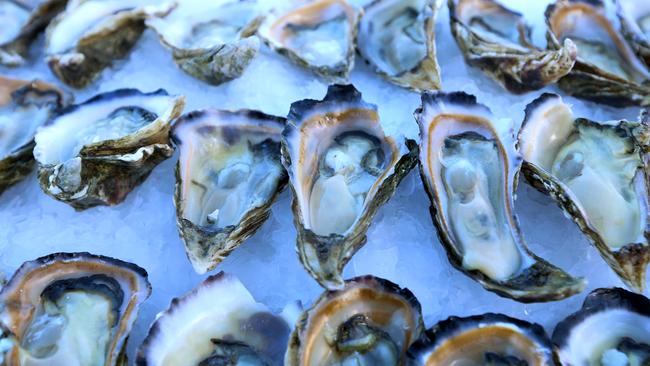Oyster crisis mayday call as virus spreads further in Tasmania
SUPPORT teams are geared up to help oyster farmers as a deadly virus spreads through the industry, while Tasmanians are being encouraged to buy the shellfish and ‘pay whatever you can’.

Lifestyle
Don't miss out on the headlines from Lifestyle. Followed categories will be added to My News.
SUPPORT teams are geared up to help oyster farmers as a deadly virus spreads through the industry.
As tests confirmed the further spread of the virus yesterday, the State Government held urgent talks with the industry about how to support businesses through the crisis.
The Department of State Growth has begun information sessions for retrenched workers who need to transition to other work and a mental health outreach service has been placed on standby.
Tests yesterday confirmed the presence of the Pacific oyster mortality syndrome at Dunalley Bay, bringing the total affected sites to five, including Upper Pittwater, Lower Pittwater, Pipe Clay Lagoon and Blackman Bay.
Primary Industries and Water Minister Jeremy Rockliff said the Government’s priority was determining how the virus arrived in Tasmania and restricting its movement.
“The Government is also providing the assistance of State Growth’s skills response unit, and a session is being planned to outline the types of employment support services that are available to assist affected employers and employees,” Mr Rockliff said.
“I have also ensured Rural Alive and Well are ready to provide support to individuals who are struggling as a result of this situation and Oysters Tasmania is ready to connect growers with RAW.”
RAW chief executive Danial Rochford said the outreach service was on-hand to support those affected and to connect them with other services.
“It’s going to be a challenging time ahead, but support is there,” he said.
The industry urged consumers to stand by farmers by continuing to buy oysters while they were still available.
James Ashmore, from processor and marketer Ashmore Seafoods at Mornington, said oysters on the market were safe to eat.
“If you see oysters grab them and pay whatever you have to in order to support the industry,” he said.
Oysters Tasmania chief executive Neil Stump said the virus was unlikely to go into decline until waters cooled, which would be late March.
Experts have suggested the virus was carried to Tasmania by a warm ocean current.
A drop in water temperature should render the virus inactive, Mr Stump said, but farmers would be left with a big clean-up to remove dead oysters.
The industry will meet today to consider the crisis.


